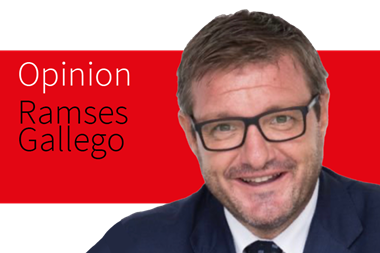When it comes to reputation, “perception matters” – “it determines whether customers buy from you, whether people want to work for you, and how other businesses engage with you”, said Daniel Green, senior broker at Willis Towers Watson (WTW)
Green was speaking alongside David Bennett, director at Willis Tower Watson’s Global Markets P&C Hub, in a session titled Reputation Risk Management – a new perspective at Airmic’s annual conference today (5 October 2021).
Bennett noted that reputation is “core to businesses ability to make money”, and the generational shift in social media has meant “influencers are the new opinion shapers and power brokers of today”.
However, the popularity of voicing opinions on social media is a risk as platforms are not subject to stringent ethics and reporting quality. Therefore, if someone posts negative commentary about a business online – this can spread at speed and become difficult for organisations to control, leading to wider levels of public mistrust.
According to WTW’s 2020 Global Reputational Risk Management survey, conducted between September and November 2020, 86% of respondents said reputational risks could result in loss of income.
Weakened human capital, because of business’s reduced ability to retain (61.5%) or attract (56.5%) talented employees, were also key factors.
The survey also highlights that social media is widely used amongst young people and is often a go-to source for them to guide their knowledge and opinions, which has contributed to the rise of ‘cancel culture’.
Cancel culture, also recognised as call-out culture, is when an individual or brand is put under the spotlight and ostracised online.
Protecting reputation
To curb this issue, Green said that the “reputational risk landscape is very complex” and a one-size fits all approach “doesn’t work”, he added.
One crisis solution that has worked for WTW is technology company Polecat.
Earlier this year (February 2021), WTW and Liberty Speciality Markets launched Reputational Crisis Insurance – a solution that enables organisations to transfer the financial risk associated with certain types of reputational crises, as well as providing access to a range of non-insurance capabilities including artificial intelligence powered data analysis. Polecat Intelligence provides the data.
Head of underwriting, speciality binders at Liberty Speciality Markets said businesses “increasing exposure” to traditional and social media has resulted in a “rise in reputational losses globally”.
He continued: “Most Reputational products in the market currently only respond to the crisis communication fees incurred following a reputational crisis event.
“This new product is one of the few that provides coverage for the loss of an organisation’s gross profit following such an event, providing financial protection and also giving clients the tools they need to protect their reputation.
“The ability to act quickly and transparently can have a hugely positive impact on a crisis outcome.”
Head of corporate risk and broking at WTW Adam Garrard added that “for organisations of all types in a changing world – the holistic management of emerging risks like fake news, social engineering and perception manipulation will be critical to maintaining value”.
Blog: Airmic Conference 2021 Daily News Summary
- 1
- 2
- 3
- 4
- 5
- 6
- 7
- 8
- 9
 Currently reading
Currently readingAirmic 2021: Reputation risk management - a new perspective
- 10
- 11
- 12
- 13
- 14
- 15
- 16
- 17




































No comments yet